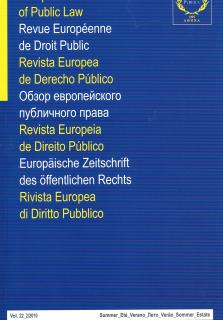
Constitutional Law / Droit constitutionnel
2009
Russia / Russie
PhD, Associate Professor of Constitutional and Administrative Law,
Law Faculty of St. Petersburg State University
The Russian constitutional legal practice and legal doctrine of 2009 were influenced by the economic crisis, which raised new issues for discussion. One of them was the principles of State participation in the economy, namely as a property-owner and as a regulator. Many scholars upheld the position that wider State interference in economy would bring a solution to the economic problems, although the State continued to control more than half of the Russian economy. The Constitutional Court focused mainly on the equality of social rights protection under the circumstances of the crisis. The problems of administrative barriers in the implementation of political rights were noticed by the Russian Ombudsman, the Constitutional Court and researchers. Administrative barriers put particular obstacles to the implementation of the right to peaceful meetings. A number of legislative acts were adopted to develop the political parties system. New guarantees of access to the media in the period between elections were among them. The main human rights issues in 2009 were the death penalty, the religious education and the equality of confessions, and the rights of incapable persons. The death penalty was prohibited by the Constitutional Court, revealing the legal consequences of the signature of the 6th Protocol to the European Convention on Human Rights and Fundamental Freedoms without it being ratified by Russia. The legal doctrine developed the constitutional values analysis approach and discussed the extent of the Constitutional Court’s discretion.





















